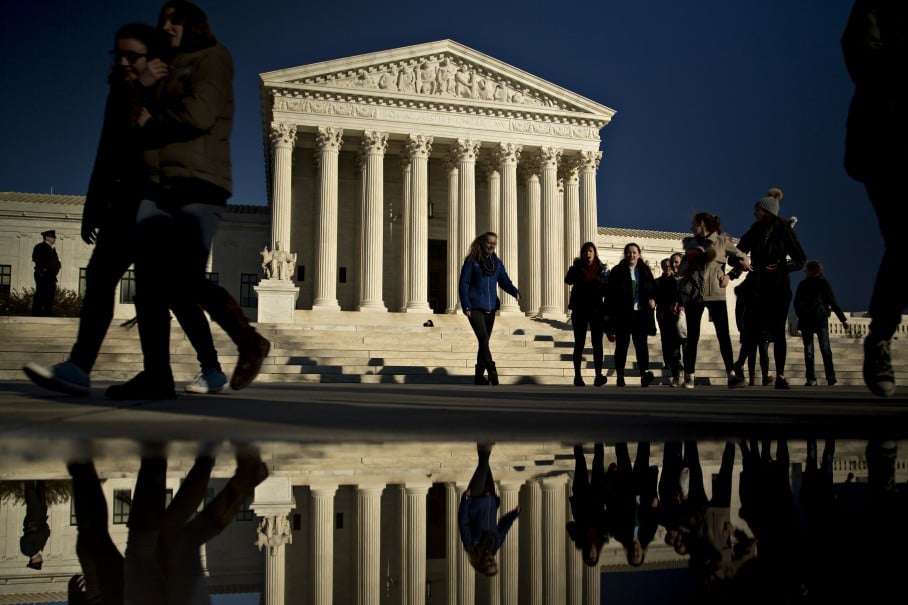The Volokh Conspiracy
Mostly law professors | Sometimes contrarian | Often libertarian | Always independent
Three state crime victims' rights amendments pass

Voters in Montana, North Dakota and South Dakota on Tuesday each approved amendments to their state constitutions adding rights for crime victims. More than 30 other states have already taken this step, and the latest votes continue that important trend.
The results make clear that protection of crime victims' rights is extraordinarily popular. Preliminary tallies show that Montana's measure passed by a margin of 66 percent to 34 percent, North Dakota's by 62 percent to 38 percent, and South Dakota's by 60 percent to 40 percent. The North Dakota margin of victory is particularly significant, since there was an organized opposition - which appears to have had little effect.
These amendments are rooted in the simple idea that victims of crime deserve a role in the criminal process. For convenience, I link here the texts of the amendment for Montana, North Dakota, and South Dakota respectively. As can be seen, the amendments parallel constitutional protections for criminal defendants with rights for crime victims. Under these amendments, defendants and victims would be guaranteed the rights to notice of court hearings, to attend those hearings, and to speak when appropriate, for example, at proceedings for bail, plea bargains, and sentencing. Victims would also receive rights to have their case proceed without unreasonable delay, to be notified when an offender is released or escapes, to have judges consider their safety before granting bail, and to restitution from a convicted offender.
These rights restore victims to their original place in the criminal justice system. When the Constitution was drafted, victims could actively pursue criminal cases, even serving as their own private prosecutors. Over time, the victims' role diminished, leaving them with little protection in government-driven prosecutions. In the 1980s, the pendulum began to swing back toward crime victim protection. Prompted by the victims' rights movement of the last few decades, more than 30 states have now enshrined victims' rights in their own constitutions. And in 2004, Congress passed the Crime Victims' Rights Act, which gave victims enumerated rights in federal court.
While the wave across America towards enforceable constitutional rights has been going on for decades, recent efforts have been fueled by the emergence of the Marsy's Law for All organization, funded by businessman Henry Nicholas. In 1983, Nicholas' sister, Marsy, was murdered. Not too long after, following a visit to Marsy's grave, Nicholas and his mother were confronted by the killer at a local grocery store. Arrested the night of the murder, he had been released on bail without anyone informing the Nicholas family. Nicholas' experience in the criminal justice system led him to support efforts to protect victims' rights. The three state votes build on successful efforts in California (2008) and Illinois (2014), and Marsy's Law efforts are underway in Nevada, Kentucky and Georgia.
The growing number of state amendments, along with the federal law, reflect a national consensus that victims belong inside the criminal justice process - with a voice in decision-making. While all states have some statutory protections for crime victims, not all of these statutes are readily enforceable. The result, as Harvard Law Professor Laurence Tribe has observed, is that existing victims' rights provisions have too often failed in the face of bureaucratic habit, traditional indifference, or the potential for conflict with the rights of the accused - even when defendant's rights are not genuinely threatened.
Protecting the rights of crime victims can be done without in any way harming the rights criminal defendants. Some of the state amendments, for example, have been in place for decades and not interfered with the proper defense of criminal cases.
The recent state amendments reflect continued progress for the victims' rights movement. And they continue to help set the stage for the long-term goal of the victims' rights movement: an amendment to the U.S. Constitution protecting victims' rights. The efforts deserve support of those who are concerned about balance in our criminal justice system. We should, of course, ensure that criminal defendants are treated fairly. But crime victims deserve fair treatment too.


Show Comments (0)